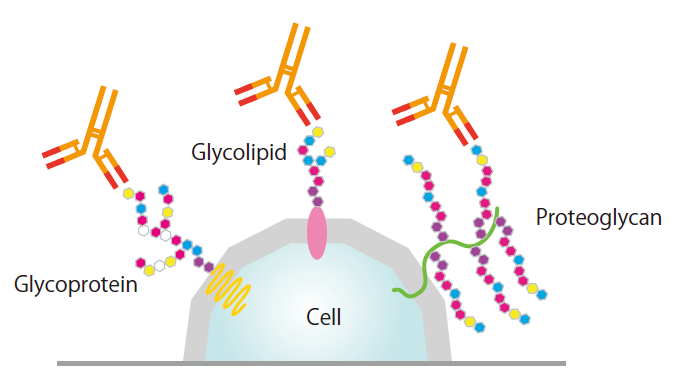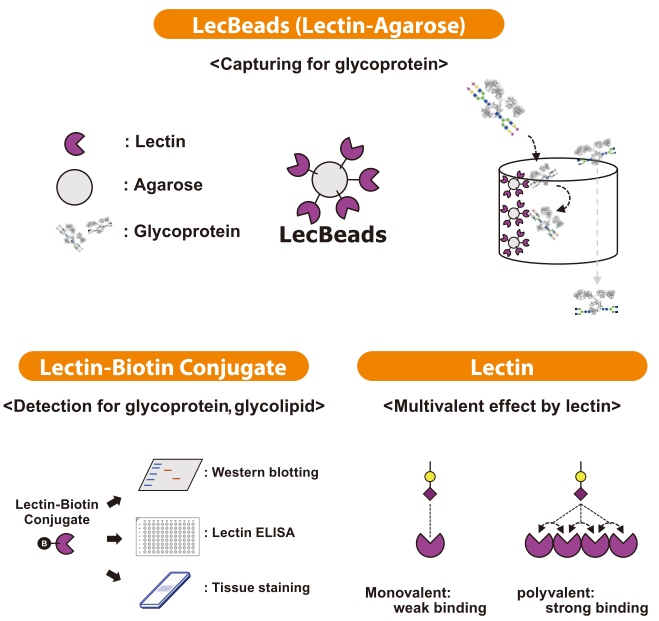
Carbohydrate chains are called the third life chain following the protein and the nucleic acid and are one of the most important issues in the post genome research. We support glycoscience research by providing useful anti-carbohydrate chain antibodies.
Most carbohydrate chains attach to lipids or proteins and occur in the form of glycoproteins or glycolipids (N-glycan, O-glycan, proteoglycans and others). Carbohydrate chains are known to be expressed on brain, nerve, cancer, and endothelial cells. Some carbohydrate chains are known to relate to diseases (e.g., cancer, Alzheimer's disease, Guillain-Barré syndrome, Lysosome syndrome such as Fabry disease, gangliosidosis), differentiation and development (iPS/ES cells). Seasonal influenza viruses, annual epidemics that peak during winter, cause infection via cell-surface glycans. Anti-influenza virus drugs are structural mimics of sialic acid, because neuraminidase is a sialic acid hydrolase that is essential for the release of progeny virus particles from the surface of an infected cell.
Anti-sugar Antibodies
Antibodies are proteins which are one of the components of the immune system. The specificity of antibodies is likened to the interaction between a key and a keyhole. Antibodies are useful reagents for research in many scientific disciplines including life science and diagnostic reagents.
Anti-carbohydrate antibodies can recognize glycolipids or glycoproteins. We mainly produce antibodies against glycolipids; ganglio series, globo series, lacto series, and neo-lacto series. These antibodies can be used for immunohistochemistry, cell-staining, inhibition assay for cell adhesion, flow cytometry, ELISA, TLC-immunostaining and other methods. Our antibodies are very useful tools for analyzing the expression of carbohydrate chains and their functions.
Biotin-labeled anti-carbohydrate antibody is also available.

Page Top
Lectins, Labeled Lectins
Lectins are highly specific carbohydrate-binding proteins of nonimmune origin. Due to their ability to bind with cell-surface glycoproteins and glycolipids, lectins could agglutinate cells; they also could reversibly associate polysaccharides and glycoproteins in solution.
Lectin has long been well-known as tools for detection and analysis of functional oligosaccharides in the glycoscience field. Recombinant lectins show better stability compared with lectins extracted from natural resources. TCI offers not only recombinant lectins but also chemically modified lectins such as several types of biotinylated lectin and lectin-agarose for detection and capturing of glycoconjugates.

Page Top



